News + Media
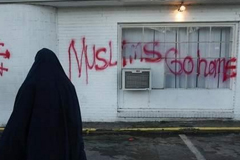 |
AuditJune 1, 2006Immigration and insecurity: post-9/11 fear in the United StatesJohn Tirman, MITThe attacks of September 11, 2001, transformed the landscape of global security, none more than borders and immigration. The topography of citizenship, belonging, and suspicion instantly changed for Arab and Muslim communities in the United States. They drew the sharp attention of U.S. law enforcement and intelligence services, and that continues. |
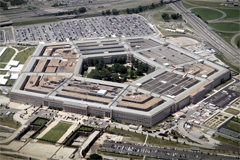 |
AuditJune 1, 2006Budgets to make America saferCindy Williams, MITSince September 2001, federal budgets for national security have climbed more than 50 percent in real terms. Unfortunately, much of the added money reflects “business as usual” rather than programs aimed at making the nation safer from today’s threats. |
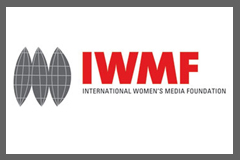 |
News ReleaseMay 6, 2006Iraqi journalist Huda Ahmed named Elizabeth Neuffer Fellow at MIT's Center for International StudiesCIS announced today that Huda Ahmed, an Iraqi journalist who has been covering the war in Iraq for the Knight Ridder newspapers, will become the Center's second Elizabeth Neuffer Fellow. The announcement was made at the Elizabeth Neuffer Forum held on May 10, 2006. |
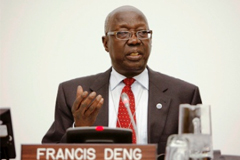 |
News ReleaseMay 1, 2006Ambassador Francis Deng, Sudan expert, joins the MIT Center for International StudiesFrancis Mading Deng, Research Professor of International Politics, Law and Society and Director of the Center for Displacement Studies at the Johns Hopkins University School of Advanced International Studies in Washington, D.C., joined CIS as the Center's second Robert E. Wilhelm Fellow. |
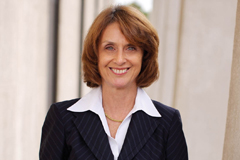 |
News ReleaseMay 1, 2006Ambassador Bodine joins MIT's Center for International StudiesBarbara Bodine, a former career diplomat who served in 2003 as coordinator for post-conflict reconstruction for Baghdad and the central governorates of Iraq, and from 1997-2001 as U.S. Ambassador to Yemen, joins MIT's Center for International Studies (CIS) as a Visiting Fellow on May 1, 2006. |
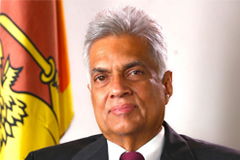 |
News ReleaseApril 10, 2006Former Sri Lankan Prime Minister, Ranil Wickremesinghe, visits MIT's Center for International StudiesRanil Wickremesinghe, a lawyer who was Sri Lanka's Prime Minister from 1993-1994 and 2001-2004, has begun a several-week residency at CIS. Mr. Wickremesinghe, who will have an office at CIS until early May, will likely meet with MIT students about the resolution of civil conflicts, a subject with additional saliency given the ongoing strife in Iraq. |
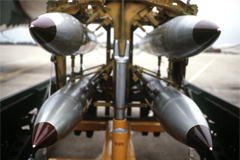 |
AuditApril 1, 2006A double standard on nuclear weapons?Hugh Gusterson, MITThere has long been a widespread perception among U.S. defense intellectuals, politicians and pundits that, while we can live with the nuclear weapons of the five official nuclear nations for the indefinite future, the proliferation of nuclear weapons to nuclear-threshold states in the Third World, especially the Islamic world, would be enormously dangerous. This orthodoxy is so much a part of our collective common sense that, like all common sense, it can usually be stated as simple fact without fear of contradiction. |
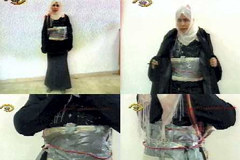 |
AuditApril 1, 2006Human bombs: rethinking religion and terrorNichole Argo, MITSuicide terror has become a daily news staple. Who are these human bombs, and why are they willing to die in order to kill? Many observers turn to Islam for an explanation. They cite the preponderance of Muslim bombers today, indoctrination by extremist institutions, and the language used in jihadi statements. |
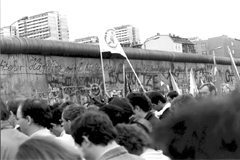 |
AuditApril 1, 2006The War on Terror and the Cold War: they're not the sameJohn Tirman, MITSince the autumn of 2001, following the shocking attacks of September 11th, President Bush and his advisers have repeatedly likened the war against terrorism to the confrontation with Nazi Germany in the Second World War and the long struggle with Soviet communism in the Cold War. But the current anti-terrorist campaign and the related war in Iraq are significantly different from those earlier contests. |
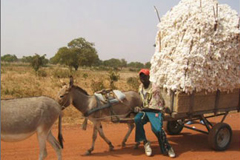 |
Analysis + OpinionMarch 23, 2006A floundering WTOBalakrishnan RajagopalYaleglobalonline, reprinted in The Daily Times (Pakistan), The Hindu, Khaleej Times and Asian AgeDisunity in the ranks of the developing nations allows developed countries to maintain their trade barriers. |

